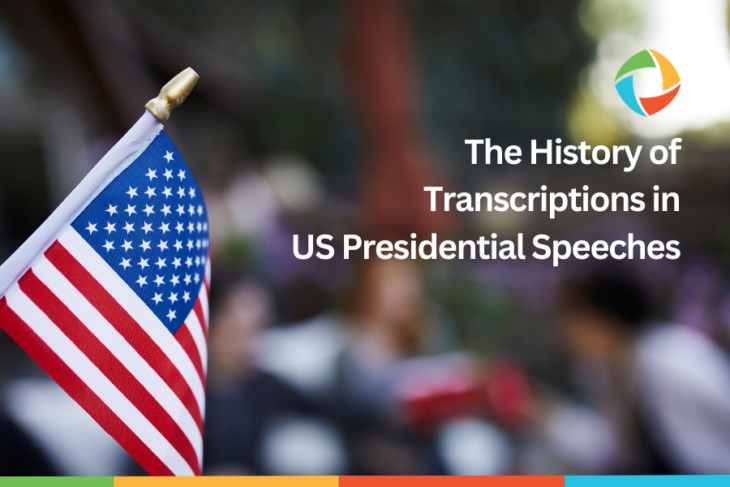The History of Transcriptions in Presidential Speeches
Transcripts have become an essential aspect of video content in today’s digital age. They provide accessibility to individuals who are deaf or hard of hearing, as well as those who prefer to read the text of the speech. While transcriptions have become ubiquitous in various forms of video content, including movies, television shows, and online videos, their use in presidential speeches is a relatively recent development. In this blog post, we’ll explore the history of transcriptions in presidential speeches, including who first introduced them in the United States.
The Reagan administration introduced the first transcriptions in presidential speeches in the United States during the 1980s. At the time, transcription technology was still in its early stages, and the use of transcriptions in live events, such as presidential speeches, was still a novelty. Despite this, the Reagan administration recognized the importance of accessibility for all Americans. It worked to ensure that presidential speeches were accessible to those who were deaf or hard of hearing.
The Reagan Administration Groundbreaking Move
In 1982, the Reagan administration took a significant step towards making presidential speeches accessible to everyone by announcing that transcriptions would be provided for individuals who were deaf or hard of hearing. This decision was groundbreaking at the time and set a precedent for accessibility in political communication. On March 18, 1982, President Reagan delivered the first presidential speech with transcriptions. The speech, which focused on the economy, aired live on national television with the transcription displayed on the screen.
Since the Reagan administration, every president has continued the tradition of providing transcriptions for presidential speeches. Today, transcriptions are a standard part of presidential speeches and are displayed on live broadcasts, as well as on video recordings of the speeches. Transcriptions have become an essential tool for accessibility, allowing individuals who are deaf or hard of hearing to participate in the political process and engage with their elected officials.
The impact of transcriptions
The impact of transcriptions in presidential speeches has been profound. Not only do they provide accessibility for individuals who are deaf or hard of hearing, but they also provide an alternative for individuals who prefer to read the text of the speech. Transcribing has contributed to a more inclusive political communication environment, allowing individuals from all backgrounds to engage with presidential speeches.
Transcripts in presidential speeches have come a long way since their introduction in the 1980s. They have become a standard part of political communication, allowing all Americans to access and engage with presidential speeches. The Reagan administration was the first to introduce transcriptions in presidential speeches, recognizing the importance of accessibility and inclusivity in political communication. Today, transcriptions remain an essential tool for accessibility, and their use will likely continue to expand in the years to come.
If you’re interested in having your presidential speeches transcribed, contact us at CaptionLabs for a quote. We provide accurate and timely transcriptions for all your political communication needs.

Jake Drown
Jake is our Vice President and oversees our day-to-day operations. Jake thrives on solving our customer’s problems - if you’re stuck at a roadblock, he’s the one you need to call. As a jack-of-all-trades, you never know what you will find Jake doing on the weekends! He and his family are seasoned travelers and can be found anywhere from a mountain top, a forest, a beach, or even a corn field!


